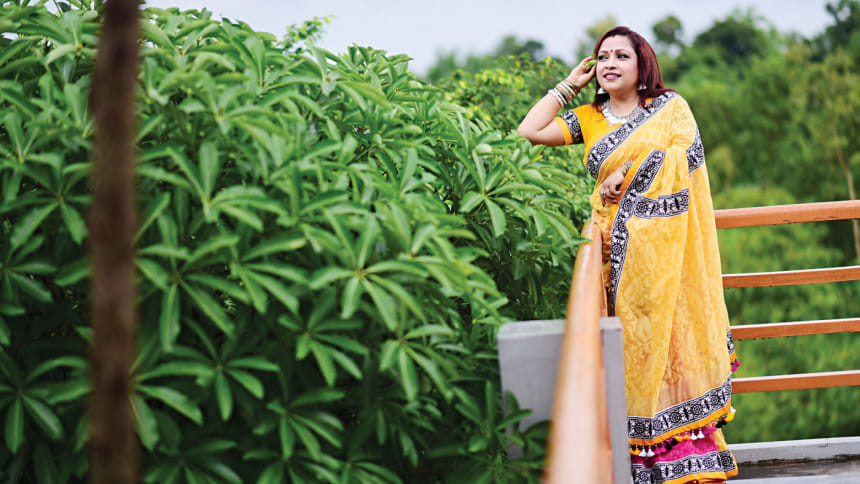A chat with Lovely Deb

Growing up in a musical family based in Sylhet, Lovely Deb was prompted to persuade music from a very early age. Events such as Mongola and Nagarkirtan acted as a motivational force for her, more so because Lovely's father realised her potential and inspired her.
"My initial journey began in a musical institute named Surbitan, under the guidance of ustad Babar Ali Khan, who was also the master of eminent singer, Subir Nandi", shared Lovely, who won a national award from Shishu Academy as a child artist. The achievement acted as an intense motivator for her, opening a gateway into Bangladesh's music industry, loko geeti being her principal choice.
The Covid-19 pandemic constructed setbacks for artistes across all industries, with music being no exception. "Mental health plays a crucial role for artists to explore their creativity and alongside hampering their livelihoods, pandemic had ceased everything that singers yearn for: stage performances, live interactions and tours to name a few," remarked Lovely. "A digital platform created solely for artists, which provides them with basic honorarium, could at least keep our country's cultural framework dynamic", she added.
"Noya Daman, which is a trending Sylheti song, was first recorded in 1973 at Sylhet Betar by singer Iyarunnesa Khanom, and I re-recorded it in the mid-90s for a wedding album named Emon Moja Hoyna. In 2003, architect Shakur Majid used this song in one of his telefilms, Boiratite", she shared. Appreciating the new remake of the song, she asserted, "As long as the integrity of the lyrics and music of a certain song is upheld, remakes are fine. However, remixes or discrediting the originality of the song is unseemly."
On account ofthe hundredth birth anniversary of the Father of the Nation, Bangabandhu Sheikh Mujibur Rahman, Lovely plans on singing and releasing over a hundred Sylheti songs. The talented singer is also working on a special project, associated with the Sylheti Dhamail performances.

 For all latest news, follow The Daily Star's Google News channel.
For all latest news, follow The Daily Star's Google News channel. 



Comments